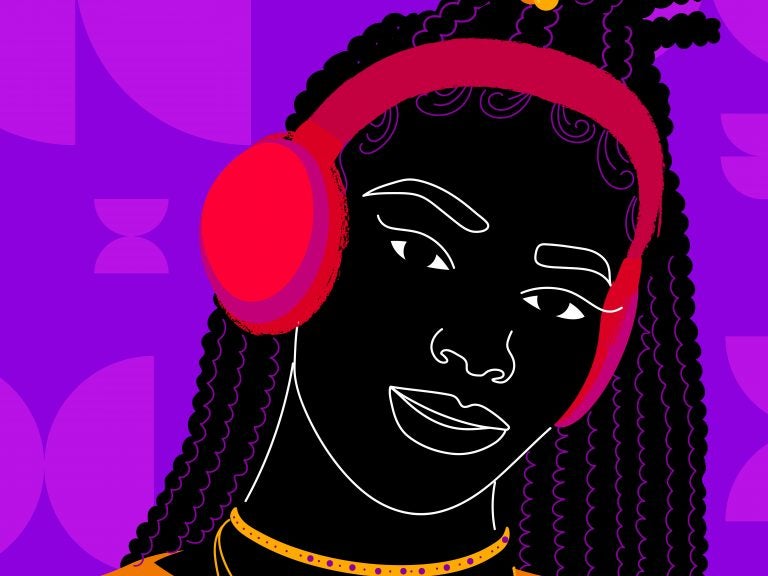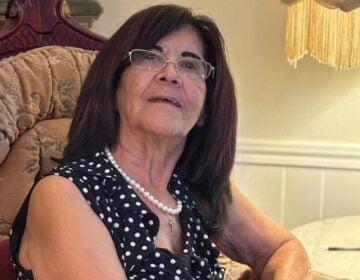A code switch playlist for Black History Month

We've got all the content you need for Black History Month. (Aurélia Durand)
Black History Month is here, and it’s the perfect time to listen to Code Switch! We’ve got episodes all about the hidden heroes and buried history of black America. To help you dive right in, check out our new playlist. It’s got stories on everything from sports activism, to the Black Panther Party, to one woman’s fight for respect that went all the way to the Supreme Court. So as you grind through the middle of winter, listen to our recommendations to be inspired, enlightened and moved.
If you want to learn about…
The first enslaved Africans in the United States
Four hundred years ago, a ship landed on the coast of Jamestown, Va. According to John Rolfe, a businessman at the small British settlement, the ship wasn’t carrying much. But the truth was, within the ship were the first enslaved Africans to arrive in the United States. We went to Jamestown to learn the hidden history of the people on that boat in ’20 And Odd. Negroes’.
How black athletes transformed sports activism
Colin Kaepernick kneeled to protest police brutality. Muhammad Ali spoke out against the Vietnam War. Tommie Smith and John Carlos raised their fists to condemn racial inequality. In sports leagues made up most of white owners and coaches, the pressure for athletes to “stick to sports” is strong. But despite attacks on everything from their intelligence to their patriotism, black athletes continue to speak out. Hear more about folks who have refused to “shut up and dribble”: A Thousand Ways To Kneel And Kiss The Ground.
Artists illuminating queer history
The history of LGBTQ+ black Americans is one of marginalization and resistance, isolation and community. At an exhibit at the Brooklyn Museum, queer and trans black artists illuminated these often suppressed stories, making dreamlike sculptures, performances and films. In this episode, marking the 50th anniversary of the Stonewall Uprising, we uncover the magic of black queer history through art: Some Of The People Knew Magic.
How the assassination of MLK changed the Black Panther Party
It was April 6, 1968 — two days after Dr. Martin Luther King Jr. was assassinated. As mourners planned his funeral in Atlanta, the Black Panther Party was busy making plans of their own in Oakland. That night, the members of the party ambushed police officers who were patrolling a house in West Oakland. During that confrontation, police shot and killed an unarmed 17-year-old who had recently been recruited to the Black Panthers. The incident drew widespread attention, leading the Black Panther Party to expand across the country in the weeks that followed. To find out more about this transformative event, listen to: The Road To The Promised Land, 50 Years Later.
Housing segregation’s past and present
You’ve heard us say it before, and you’ll hear us say it again: #HousingSegragationInEverything. That’s because much of what we talk about on Code Switch can be traced back to where we live — or more accurately, where some Americans were allowed to live. For a discussion about racial discrimination in housing, its continued influence on…well, everything, and a look back at the Fair Housing Act, make sure to listen to: Location! Location! Location!
The woman who refused to be disrespected
Enter a courtroom and you’ll hear honorifics like “Mr.,” “Mrs.” and “Miss”. You have Miss Mary Hamilton to thank for that. During a time when white people regularly reserved courtesy titles for other whites only, Mary Hamilton refused to answer questions on the witness stand until she was addressed with the same honorific given to white women. Her case eventually reached the Supreme Court and changed the way courts behave to this day. To learn more about her, check out: Disrespect To Miss-Respect.
One of the most well-attended lynchings in U.S. history
In 1934, a 23-year-old farmhand named Claude Neale was lynched in Marianna, Fla. Thousands of people from nine southern states participated in his murder, but no arrests were made, and Neale’s story went largely untold for decades. Poet Lamar Wilson and journalist Ben Montgomery were committed to changing that. A Strange And Bitter Crop is about growing up in a place that’s haunted by a violent history — and the continued trauma of ignoring the past.
Activists fighting racism outside of the United States
Anti-blackness exists around the world. In Colombia, one of the most enduring and recognizable characters on TV was portrayed by a white actor in blackface. The character, Soldado Micolta, had a heavy accent and a habit of mispronouncing words. When activists began to condemn the character, it ignited a national conversation about racism in the country. It also brought attention to the racist stereotypes and media portrayals Afro-Colombians face. To educate yourself more about this, listen to: Twenty-First Century Blackface.
We’ll be updating this playlist throughout the month, so make sure to subscribe.
9(MDAzMzI1ODY3MDEyMzkzOTE3NjIxNDg3MQ001))




